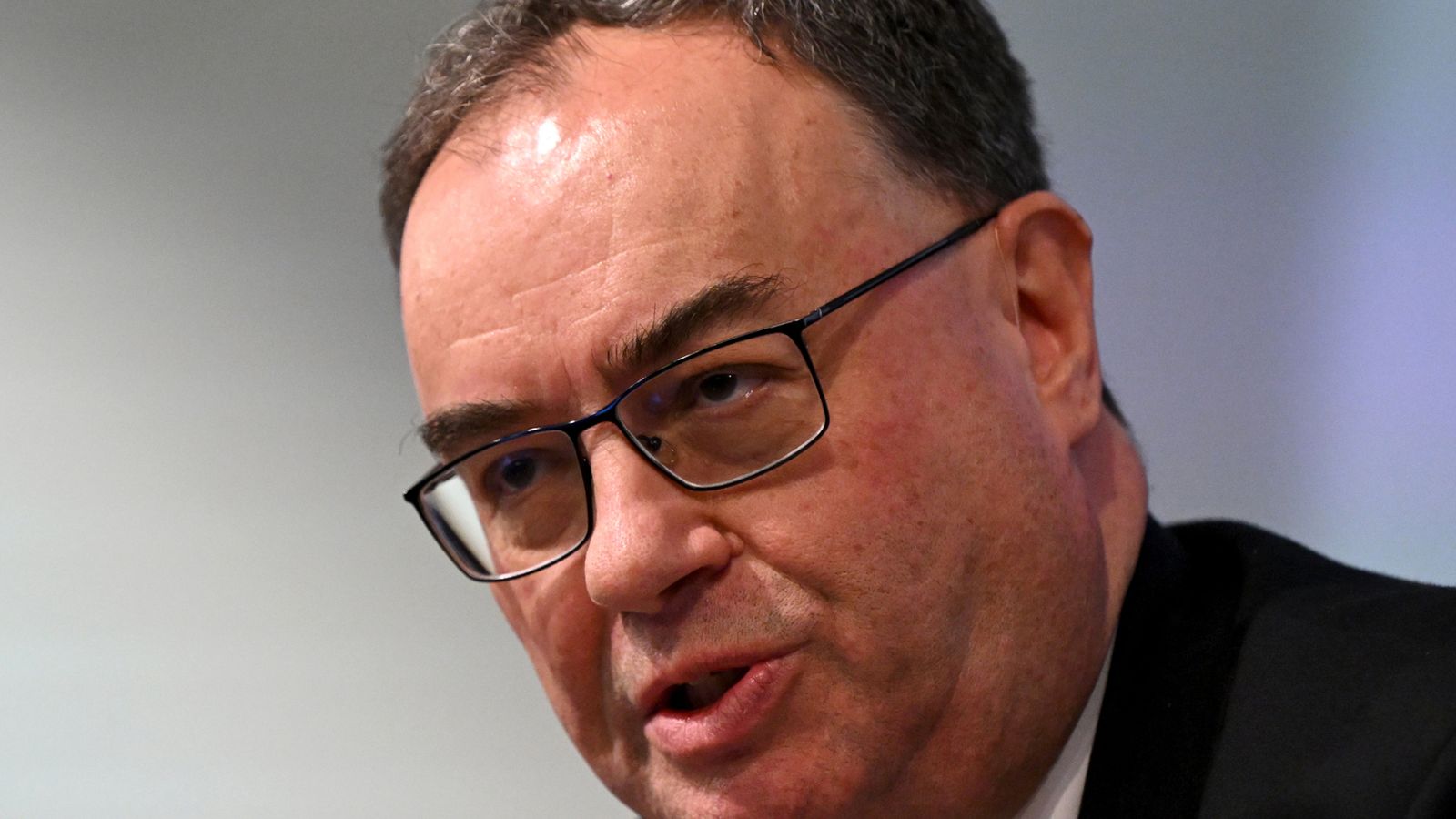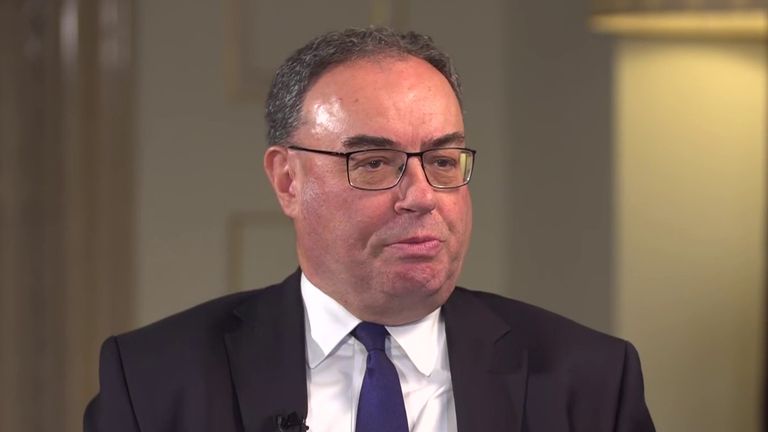‘Distinct signs of upturn’ for recession-hit economy, Bank of England governor says


There are “distinct signs of an upturn” in the UK economy, according to the governor of the Bank of England after official figures suggested the country entered recession over the second half of 2023.
Andrew Bailey told a committee of MPs he believed the downturn would be one of the most shallow recession events of modern times while explaining the Bank‘s role in deliberately cooling demand in the economy to help ease the pace of inflation.
He was speaking for the first time since the Office for National Statistics (ONS), in an early estimate of gross domestic product between October and December last year, recorded negative output.
It left the UK in a technical recession because the economy had also recorded negative growth in the previous three months.
Mr Bailey stressed the Bank’s actions against inflation, through 14 consecutive interest rate hikes to date, were aimed at bringing the pace of price growth back down to its 2% target level to help allow for sustainable economic growth ahead.
The Bank’s monetary policy committee paused rate rises last summer and has resisted imposing a cut because of worries over the outlook for inflation later in the year.
One of those risks is around the fact that there is “full employment” in the UK, Mr Bailey said.
Please use Chrome browser for a more accessible video player
8:22
Sky News speaks to BoE governor
He described it as good news as it suggested the economy was in better health than the headline figures showed but added that it was, nevertheless, a risk to efforts aimed at keeping inflation down because of what it could mean for demand.
Money latest: Santander hiking all interest rates for new mortgage customers from tomorrow
Advertisement
He also cited worries about energy costs and disruption to shipping in the Red Sea pushing up price growth in the second half of 2024.
Asked about financial market bets that the Bank would be in a position to begin rate cuts in late spring, Mr Bailey responded: “We do not endorse the market curve.
“We are not making a prediction of when or by how much (we will cut rates),” he said.
“But I think you can tell from that, that profile of the forecast… that it’s not unreasonable for the market to think about.”
Deputy governor Ben Broadbent said his decision on any rate cuts would be based on “data not dates”.